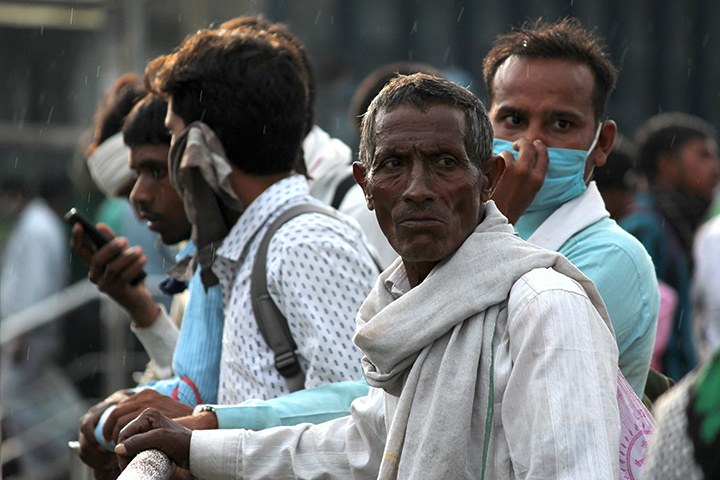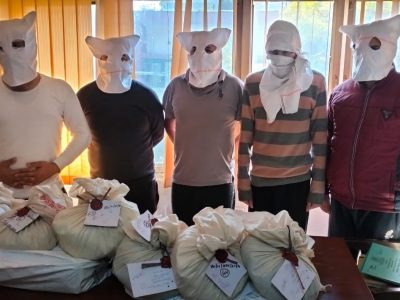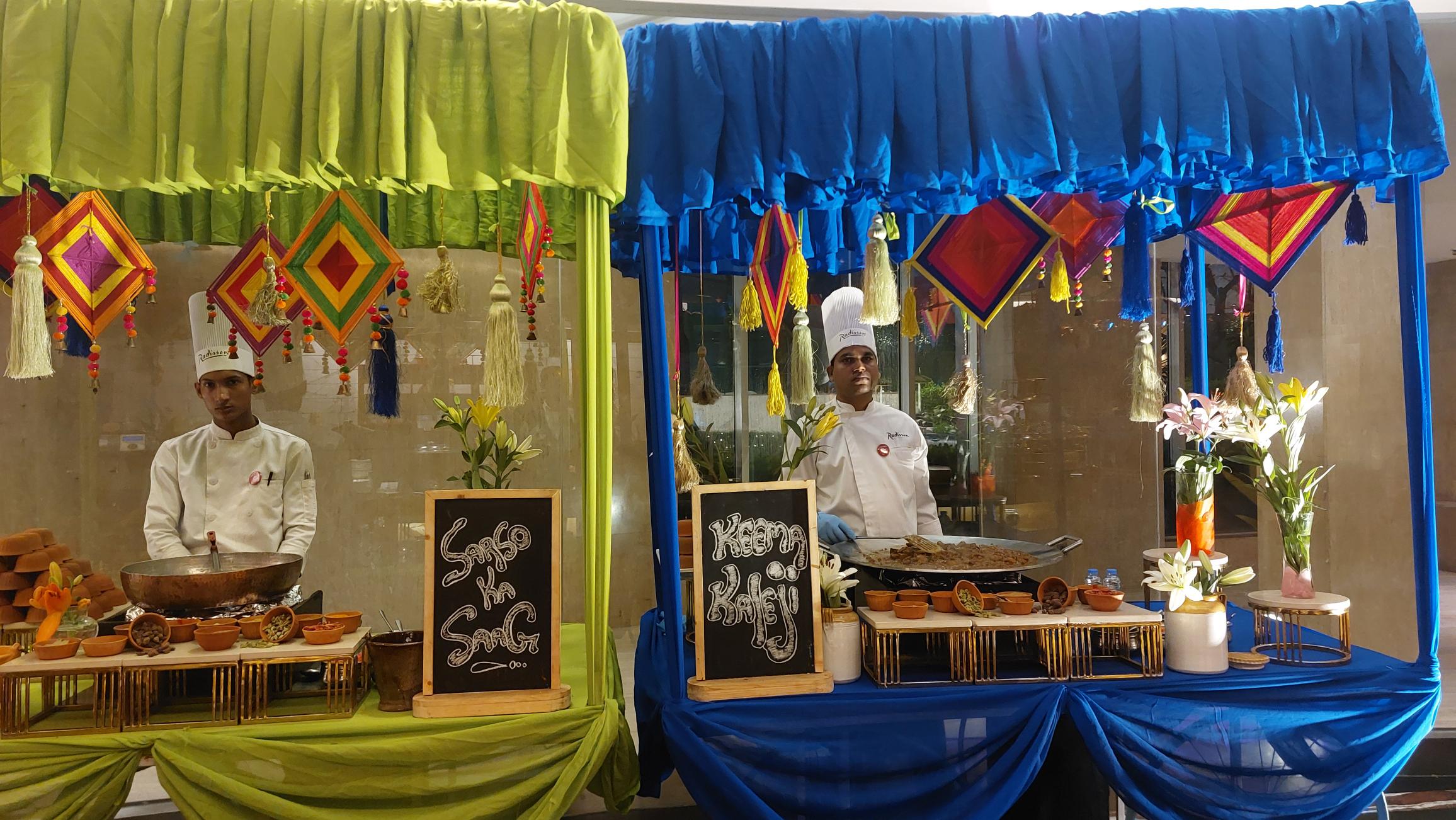Despite promises for help with employment, migrants from Bihar’s Darbhanga decry government’s unconcerned attitude. They return to the Capital to find no jobs, or ones that pay a fraction of what they did before the pandemic hit
“Since I was a young boy, I have been coming to Delhi for work. When I became aware that I have to earn and eat which was around the age of 14, I came here. I went on to sew handbags for women and was working in Nawada before the lockdown”, Anzar tells us, now around 35 years old (he isn’t quite sure), from his hometown of Darbhanga in Bihar to which he left after two months of staying in Delhi’s Faridpuri, jobless, since the lockdown was announced on March 24.
Like many migrants stuck in cities like Delhi, he found himself without employment and no means to go back home to his village. He along with four other men who shared a one-room facility, received help from an NGO to go back.
“In my factory, there were about 700-800 people working. Every day, the management would tell a fraction of people to leave. They said that in another 15 days the factory will close, and gave their number saying when work opens, we will call.”
But that hasn’t happened yet. Numerous calls to his former employer have been fruitless. “He says right now we are not going to open the factory and that when they need us, they will call. But I have not been working for over five months now and I need to come back to Delhi and find something.”
Unfortunately, he has no money to return, he says, and those who came back to Delhi from his village have not all found success.
In fact, the migrants were hoping just as Bihar Chief Minister Nitish Kumar had assured, that they would be provided employment in the state itself, even appealing to them to stay back and contribute to Bihar’s development. This was a huge promise, looking at the fact that he even cited that 20 lakh natives of the state had returned to their home in more than 15,000 ‘Shramik Special’ trains during the Coronavirus crisis.
This number does not take into account those who had to walk back home due to the lack of transport and money, or even those who received help through various NGOs with buses to return home.
However, while there have been promises, Anzar, like the other men we spoke with, said no help has yet come to them for employment. Adding to his woes, his small farmland was swept away in the floods that ravaged Bihar this year. “We are somehow managing on our savings. I have four kids, my wife, and father and mother to take care of. (But) There’s no work in Darbhanga, no companies and the government is not helping. In the floods, even our agricultural land got submerged and everything was destroyed”, he shares.
Darbhanga, the district from which most of the men we spoke with hail from, according to a study ‘Dimensions of rural poverty in Bihar’ from 2013,’ has 41% households living ‘Below Poverty Line’. Analysis of data revealed that the extent of migration is 70% in Darbhanga district. About 50.7 per cent adult males of Darbhanga district have migrated.
Furthermore, among three social groups, all the Scheduled Caste households in Darbhanga district belonged to BPL.
Murad Ansar, another migrant from Darbhanga says he came back to Delhi in July, after spending three months in his village. “My home was submerged in waist high flood waters. I had no job, and no savings and have been living off of loans taken from people.”
Calling himself the master of Nihari (slow cooked meat), Ansar who even before the pandemic did not have a steady job, working at various dhabas in Delhi’s Jama Masjid area and Jamia Nagar, has had no success in finding a single day of work since returning.
“I took loans and survived and even now I have taken loans to buy my meals. In Darbhanga there is no job. They said that ‘we won’t let labourers go; we will get you a job’ but all of this was politics”.
Bihar goes to polls in three phases on October 28, November 3 and 7, and unemployment and the crisis that migrants faced on returning home during the lockdown and their continuing struggle may be a huge factor this time.
Ansar says he would indeed like to go back and place a vote when the elections happen, “I didn’t get any money in my bank account as promised, no help from the government for a job. We are so frustrated that we got nothing, (but) now going back there would be unfruitful. (CM) Nitish Kumar said we will give jobs, so what is the answer to this?”
Ansar says the money he has borrowed helps his four children get tuitions as schools are shut due to the pandemic.
Another man who told us that he has had to take loan during this pandemic is Gulab, who has had more time in Delhi than others. He left Darbhanga in 1977 and came to Delhi. While he returned to his village during the lockdown after help came from an NGO, with his children enrolled into Delhi government school he decided to return and see their education would not face a roadblock.
“I am illiterate. I understood that I can’t let my children live through the same problems, so I’m educating them. My son is studying in 10th class and my daughter is studying in 7th class. I have put the jewellery we had as collateral for a loan. I have to pay their tuition fee, the rent, electricity bill, and I have another child who is in the village… I have all these responsibilities.”
Unlike the others, Gulab has managed to find himself a job and started just a week earlier, a month and half after returning to Delhi. The problem is that he makes a fraction of what he used to earn, blaming it on the surge of migrants looking for jobs, and only a few opportunities available. “I used to stitch jeans, and now I stitch jackets but as work opportunities are less and labour is more, the pay is quite low.”
Like Anzar, Gulab too came as a young boy, around the age of 12 he says, first taught how to sew, then going on to stitch denim jeans to shirts. “I have problems, and am living through a very hard time. In the early part of the lockdown, I was coughing a lot. I was very scared. I went to the doctor and they asked me to go get tested at Ashok Vihar. I walked there but they didn’t test me; I got scared and decided me and my family needed to return home.”
Many returned home as their workplaces closed down, and they were left jobless. Some also returned with the fear of contracting the virus in the packed slums they inhabit.
Prime Minister Narendra Modi on June 20 even launched the ‘Garib Kalyan Rozgar Abhiyaan’ with an outlay of Rs 50,000 crore for migrant workers who returned to their home states during the Coronavirus-induced lockdown.
The Prime Minister launched the scheme via video conference in Bihar, in a village in Khagaria district in the presence of CM Kumar and the chief ministers of Madhya Pradesh, Uttar Pradesh, Rajasthan, Jharkhand and a minister from Odisha.
How many have till now benefited from this economic package, or will go on to gain something is not known.





